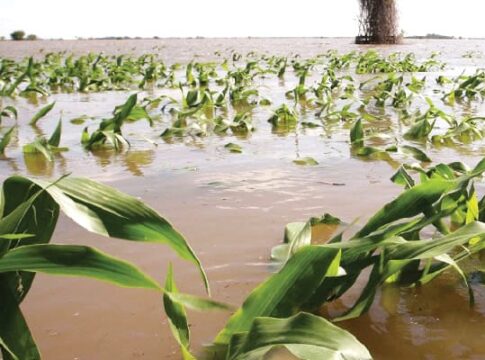The recent floods in Nigeria have dealt a crushing blow to the country’s food security, destroying crops that could have fed 8.5 million people for six months, according to the United Nations’ Food and Agriculture Organization (FAO).
This dire assessment comes as the nation grapples with the aftermath of the heavy floods that swept through farmlands, exacerbating the already dire food crisis.
The FAO notes that quantifying the full extent of the damage remains challenging due to the disaster’s sheer scale.
However, estimates suggest that approximately 856,000 tons of crops have been lost, based on an average yield of 1.5 tons per hectare.
This devastating loss comes at a critical time, as nearly half of Nigeria’s 200 million people live in extreme poverty.
READ MORE: Burundi Moves To Fight Spread Of Mpox As It Ravages School Children
Food prices are skyrocketing, with an annual inflation rate of 37.5%.
Farmers had anticipated a bumper harvest this year, planting groundnuts, vegetables, and rice.
Instead, the floods have ravaged 12 local government areas in Jigawa State alone, destroying over 2,744 hectares of farmlands.
Dr. Haruna Mairiga, Secretary of the Jigawa State Emergency Management Agency, reported that the floods claimed 21 lives and destroyed homes.
“The floods have wreaked havoc on our agricultural sector, with farmers losing over N1 billion worth of farm produce and crops,” Mairiga said.
The Nigerian Hydrological Services Agency had warned of high flood-risk areas in 31 states and 148 local government areas.
The disaster underscores the urgent need for support and relief efforts to alleviate the suffering of affected communities.
As Nigeria struggles to recover from this disaster, it’s clear that the road to food security will be long and challenging.
Would you like more information on the flood’s impact or relief efforts?
Freely subscribe to the AFL magazine for more updates.




